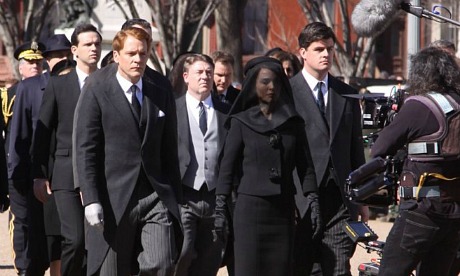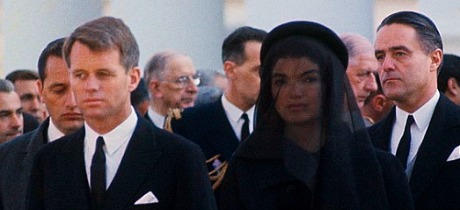Jason Bourne isn’t too bad, but it feels like an aggressive effort to make money. More to the point, it doesn’t feel like it’s really about now. Except in one respect — cyber-tracking technology has become so immaculate and absolute that there are no chases any more. You can no longer lose the bad guys by ducking into an alley or an apartment building or some dark corner — the CIA and web technology know where you’re heading before you get there. So there’s now a kind of built-in futility to this kind of thing. The baddies are always breathing down your neck. Hell, they’re waiting for you.
Director Paul Greengrass, helmer of The Bourne Supremacy and The Bourne Ultimatum (i.e., the best of the bunch), delivers serious excitement in the early Athens bike-riding sequence, but the brutally insane Las Vegas car-chase finale is like something out of James Wan‘s Fast 7 — grotesque, nonsensical destructo-porn.
The Bourne franchise was hatched in the post-9/11 Bush era, and to some extent I think many of us sensed that the first three films (’02, ’04, ’07) were absorbing and reflecting the psychic atmosphere back then — the after-smell of smoke and dust and jet fuel, the venal Dick Cheney vibe, the blowback stench from the Iraq invasion, bad guys in charge, whiffs of coming economic chaos. But things feel different now after nearly seven and a half years of Obama, and the vibe just ain’t the same.
Question: Early on it’s clear that Matt Damon‘s Bourne character is living hand to mouth. He’s making ends meet by decking opponents in bare-knuckle boxing matches in northern Greece. Which would bring in what? A few hundred bucks per match, if that? And yet once the action kicks in he does the usual globe-hopping that he’s done in previous installments. He’s got plenty of different passports but you need serious dough to fly or take trains from city to city, not to mention food, hotels, temporary cell phones, etc. So where’d he get the scratch?




